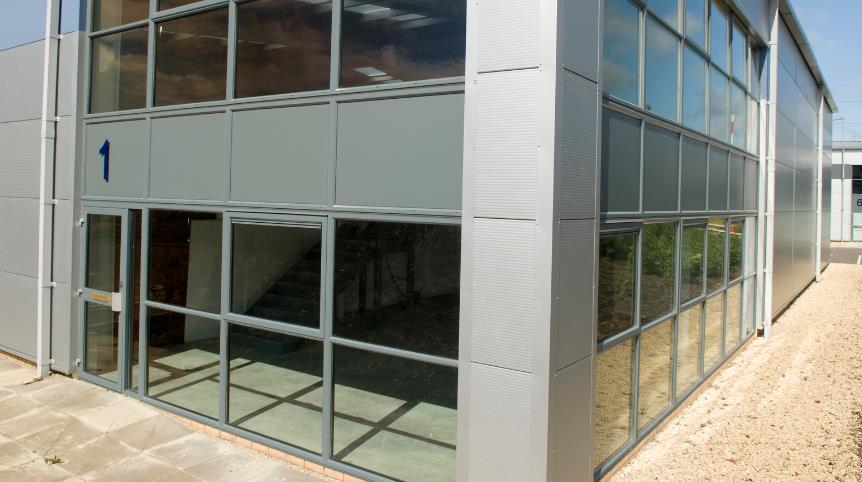Table of Contents
Commercial property owners have a commitment to keeping tenants and visitors safe, which is why regular maintenance is essential. Property maintenance covers everything from replacing lightbulbs to having equipment inspected regularly. In this article, we’ll tell you why property maintenance is a must before offering up eight tips.
Why Is Maintenance Important for Commercial Properties?
Landlords have to be fully aware of their maintenance obligations, which can change depending on the type of building. Having a full grasp of maintenance tasks allows for a maximum return on investment, and it prevents coming under fire and facing lawsuits for negligence.
The main three reasons for maintenance are:
- Safety. There are countless government regulations on safety, and maintenance is essential for meeting the standards.
- Expense reduction. Maintenance may be expensive, but it’s cheaper than paying for repairs.
- Tenant retention. Simply put, a tenant won’t stay in a commercial property that’s not looked after.
Commercial Property Maintenance Tips
1. Repair Damage Straight Away
 If you notice the damage during a check or you’re made aware of existing damage by a tenant, make sure you take care of it straight away. Even if the repair is minor, the damage will only get worse and become more expensive. As well as saving money, fixing your building swiftly will help strengthen the rapport with your tenants.
If you notice the damage during a check or you’re made aware of existing damage by a tenant, make sure you take care of it straight away. Even if the repair is minor, the damage will only get worse and become more expensive. As well as saving money, fixing your building swiftly will help strengthen the rapport with your tenants.
2. Create a Routine Maintenance Checklist
There are so many maintenance jobs that it would be impossible to get them all done in a day – or even a week. Therefore, it’s important to create daily, weekly, and monthly checklists to help you balance all of your tasks. However, you will need to ensure you remember those tasks that happen at longer time intervals, like a Gas Safety Certificate for Landlords, which needs to be renewed every year.
3. Carry Out Monthly Checks
Even though you’ve got a maintenance checklist to ground your efforts, issues can still slip through the cracks. Therefore, to avoid missing anything, carry out regular checks of all areas. The best thing to do is go room to room and note any issues and also record any actions that you’re taking to rectify them. That way, if you have visits from Health and Safety, you can prove that you’re aware of the problem and that you’re already underway with the solution.
4. Always Meet Building Regulations
Your entire commercial property needs to comply with building regulations at all times, so make sure your maintenance schedule accounts for this. For example, you will need to assess your gas appliances annually to receive your Gas Safety Certificate.
 If you need help keeping track of your maintenance tasks, especially the ones that keep your building legal, it’s a good idea to use maintenance management software. These tools can send you alerts when your gas checks are due, and some of them can even arrange a Gas Safety Certificate Near Me.
If you need help keeping track of your maintenance tasks, especially the ones that keep your building legal, it’s a good idea to use maintenance management software. These tools can send you alerts when your gas checks are due, and some of them can even arrange a Gas Safety Certificate Near Me.
5. Target High-Traffic Locations
Commercial buildings get super busy, but some areas will always see more traffic than others. Therefore, while creating your maintenance schedule, you should target areas with high footfall. For example, if you own a small business that has an office building with a lobby and other common areas, these will require more attention.
6. Think Outside the Building
First impressions matter when it comes to commercial buildings, so your tenants will rely on you to make sure the outside of the building looks great. Therefore, make sure you’re regularly cleaning windows and repairing cracks in walls. As well as this, the car park will need plenty of attention. After all, it’s the very first thing a lot of visitors will see. Other external maintenance tasks include:
- Landscaping
- Gutter clearance
- Roof/chimney checks and repairs
- Windows, internal doors, and walls
7. Watch Out for Mould
 Mould thrives in damp areas, and it’s not something you want in your commercial properly. Therefore, make sure you remain vigilant and keep an eye out for mould. In particular, you should be checking around plumbed fixtures. If you find mould here, there’s a chance that something is leaking, which can lead to significant structural damage.
Mould thrives in damp areas, and it’s not something you want in your commercial properly. Therefore, make sure you remain vigilant and keep an eye out for mould. In particular, you should be checking around plumbed fixtures. If you find mould here, there’s a chance that something is leaking, which can lead to significant structural damage.
8. Hire Some Help
We’ve already established that there are a lot of maintenance tasks that a commercial property owner has to take care of, and it can be quite an undertaking to do alone. Therefore, it may be a good idea to hire some help to share the load. In some cases, your tenant will be responsible for taking care of part of your maintenance. For example, a trusted business manager could easily schedule your Gas Safety Certificate London on your behalf.
Using these tips and understanding commercial property regulations will help you to put a maintenance schedule into place. Every area of the building will need maintenance, so it’s best to break your checklist into different locations. Remember, the cost of carrying out maintenance and repairs will easily outweigh replacement costs.




